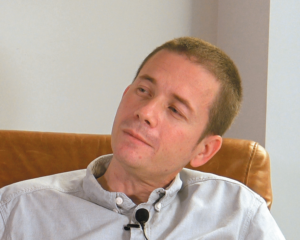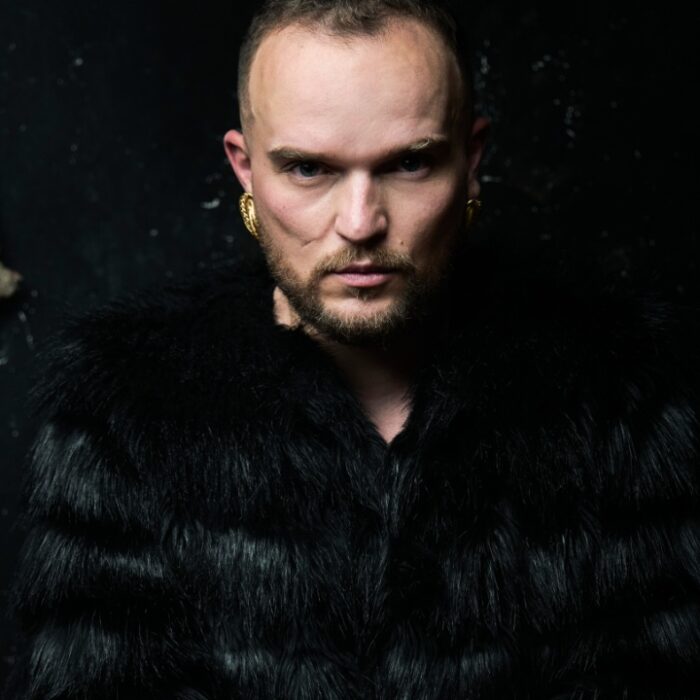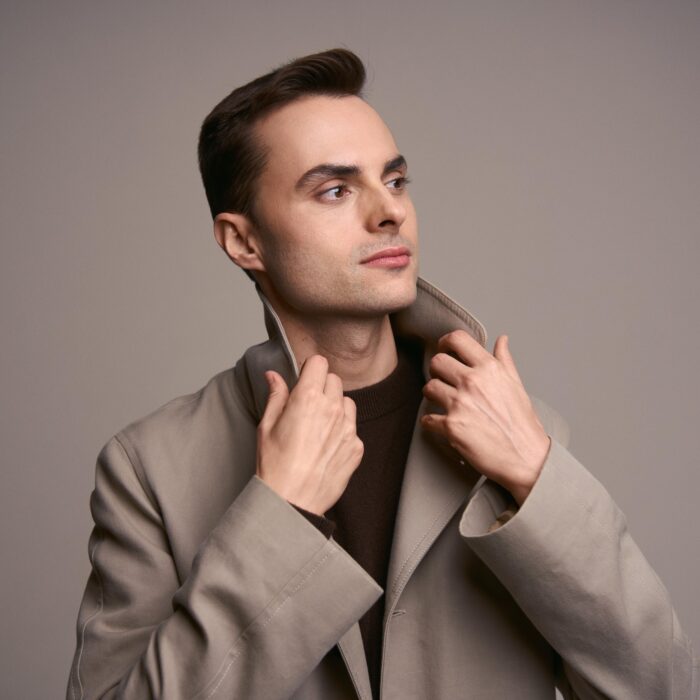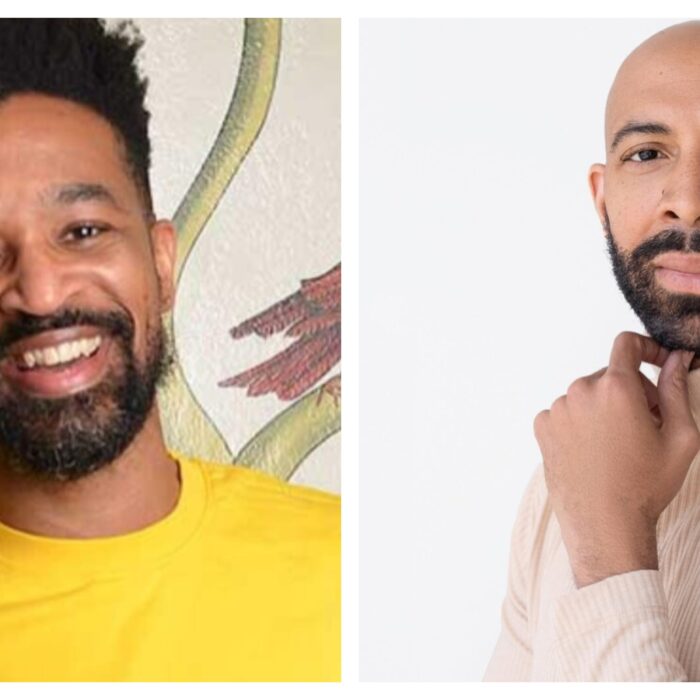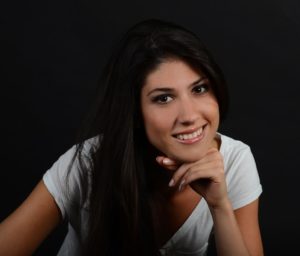
Q & A: Serbian Soprano Aleksandra Jovanović On Her Big Breaks In Berlin, Vienna, & Paris
By Dejan Vukosavljevic(Credit: Aleksandra Jovanović)
Young Serbian soprano Aleksandra Jovanović‘s career has exploded in 2019 with invitations for major international debuts at the Deutsche Oper in Berlin, Wiener Staatsoper and Opéra de Paris.
She has also had renowned performances in recent major competitions. In 2018 she was awarded third place at the international competition “Die Meistersinger von Nürnberg,” which was followed by “SWR Junge Opernstars – Emmerich Smola Förderpreis” in January 2019, and then fifth prize at the Seoul International Music Competition in late March 2019, where she entered the finale as the only singer from Europe.
OperaWire recently spoke to Jovanović about major milestones in her career and the path laid out for her with recent invitations.
OperaWire: You were born in Serbia, small country in the Western Balkans. Period of your childhood was marked with heavy country’s internal turmoil. What was it like to grow up in such environment?
Aleksandra Jovanović: There was indeed a turmoil, but I wasn’t aware of that. I have to thank my amazing parents for such an upbringing, because they were determined to provide a carefree and happy childhood for me. During that period I had lots of extracurricular activities and even started my initial musical education.
So yes, my childhood was filled with happiness and love, and only years later I found out how things were difficult back then. I come from a non-musical family, so nobody could have known I would choose music as my profession. My parents believed that the education was the key and really invested in my education and my interests, so they bought my first pianino when that was really difficult to do. I was really happy about that, but after many years I realized how difficult must have been for them to acquire that pianino.
OW: When did you have your first contact with the world of classical music and opera? How did that look like?
AJ: At first I had a piano tutor, she was a lovely and warm person, so my first contact with classical music was a very pleasant experience. She suggested to my parents that I should probably go to a music school. So that is how it all started, with private piano lessons. I was nine years old at the time.
OW: What did you do next about your musical education, were you provided with necessary conditions in order to prosper?
AJ: First I went to a Primary Music school where I studied piano – being nine years old, and after that I went to a Music High school where I started to study music theory. At that time it felt as if it weren’t enough, because my friends were actually making music, playing different instruments, and I was just doing music theory. I was thinking what I could do about it at this age, as I was already 17 years old – so I couldn’t start playing a new instrument. And then it occurred to me that maybe I could start opera singing. I asked one singing teacher whether that was my thing or not, did she see me in that profession, and she said – yes, absolutely, you should start working with me. That is how it all started, but in the beginning I did not expect I would be doing operatic singing as my profession in the future.
When I finished with music theory section at the Music High school, I enrolled with the musicology studies at the University of Arts, Faculty of Music, so I thought I would become a musicologist. Still, I did not stop with my vocal lessons, doing them in parallel with my musicology studies. I wasn’t still quite sure what I will be doing as a profession later on, and my first singing professor in the high school was also a coloratura soprano. She brought so much love to her classes, and she brought me in the world of opera singing and coloratura repertoire. As I was working with her, I started thinking – well, maybe I could do this as a profession in my life. I started being better and better in it, became more confident and started to explore more and more repertoire.
Eventually I enrolled in the studies of voice at the same Faculty of Music working with a well-known Serbian soprano Aneta Ilić. She has a really unique personality and artistry, and she is a great inspiration. So I learned a lot during the lessons, but also by her example. At the faculty, I believe, that’s where the way I sing was developed further, along with singing aesthetics and musical taste. At the beginning of my studies I also made my stage debuts, and then I was definitely sure I would do it as a profession.
OW: How did you feel about that, realizing that opera singing is your future?
AJ: When you’re young you always have a dilemma what you will be doing in your life, you have many interests and it’s really hard to choose. We get to choose our profession in really early stage of our life, we can not be really completely sure about it. When I came to that point that I knew I would love to be an opera singer and nothing else, that was actually a wonderful moment. It was quite relieving, I was quite positive that I wanted to do it. Especially when I got my first stage experiences, when I felt that adrenalin and that love for it, and excitement for every performance. That was the amazing feeling that I knew what I would be doing in my life. It is not only about being on the stage, but also practicing – it is really a fulfilling feeling for me, being productive. That is when you really have productive practice time on your own, in some practice room, and when you leave that room – the feeling that you did something more for your singing technique, artistry and making music. The feeling that you improve every day is precious, not just the stage experience.
OW: The capital of Serbia, Belgrade, does not have its own opera building, but the stage of National Theater is being shared by opera, ballet and drama. How difficult was it to find your first professional engagement in such conditions?
AJ: Yes, that’s true. In Serbia there are two national theaters and one private-owned, but yes, there is no separate opera house, opera as a separate institution. I was lucky enough to get the opportunity for my first stage experience when I was really young. It was in the Opera and Theater “Madlenianum”, a private-owned theater and chamber opera. There we did “The Magic Flute” and it was really a precious experience for me, to get to know how this profession works and how it looks like to prepare one project from the beginning. Both the director and the conductor were really supportive and careful with our voices. So it was really a great experience for me.
I actually returned to this house, having my first operetta debut in the role of Pepi Pleininger in “Wiener Blut”. What followed were my debuts in the National Theater in Belgrade and Serbian National Theater in Novi Sad, in both theaters with the role of Queen of the Night in “The Magic Flute.” Somehow, that is my lucky role, and also the role I am very much fond of. I feel comfortable in it, and I could never get bored with it.
I also had a lovely collaboration with the music production of Serbian Broadcasting Corporation, and I got some precious opportunities to make my debuts in Orf’s “Carmina Burana”, Haydn’s “The Creation” and Mozart’s “Requiem”. I had 11 performances with these lovely ensembles.
OW: What do you think about musical culture in Serbia?
AJ: I can not really say I am closely following musical cultural scene in Serbia in general. I am mostly focused on the classical music. If I wanted to make some interesting distinction, that would certainly be the appearance of new, young ensembles that are making very interesting programs and projects, along the existing institutions with their regular programs. I like that very much. When it comes to other fields of music, I could say there are plenty of new, young authors that are combining genres and aiming at international careers.
OW: In April this year you had your first major international debut on the stage of the Deutsche Oper in Berlin. Tell us more about that.
AJ: Yes, that’s right. My debut on the stage of Deutsche Oper Berlin in the role of The Queen of the Night in “The Magic Flute” happened 5 days after I returned from Seoul, where I was competing at the Seoul International Music Competition. I remember that week as a really intensive one, but I really loved it there, at the Deutsche Oper Berlin. There is such good energy at this house, and I really couldn’t have wished for a better place to have my international debut. The Günter Krämer production of “The Magic Flute“ is really an amazing one! It is absolutely lovely.
There is one particular moment that I especially remember, which happens few moments before my appearance on stage. I was standing behind the black curtain before which Tamino was singing his aria, so I was on stage, but the auditorium wasn’t aware of it. When the curtain rises, I should start running towards Tamino, but before that I was standing there all alone in the dark, waiting for my entrance. The lights were being prepared for my scene, but not only the lights: it also started to snow in that special light setting. That moment was a pure magic.
OW: In December you will have a major milestone in your career, you will debut on the stage of Wiener Staatsoper, in the role of Queen of the Night in “The Magic Flute,” and you will be part of a stellar cast: your partners on stage will be Andreas Schager, Andrea Carroll and Rafael Fingerlos. How do you feel about this incoming performance?
AJ: I am really delighted and honored to perform in this season at the Wiener Staatsoper, especially in the role of Queen of the Night. This renowned house is really a place to be, and combined with this stellar cast it is a huge inspiration and opportunity to grow. I am really looking forward to it and I can not wait for rehearsals to begin.
OW: Shortly after performances in Vienna, you are going to the Palais Garnier. What will you be singing there?
AJ: I got the invitation to perform at the Opera de Paris in January 2020. I will be singing in Maurice Ravel’s opera “L’Enfant et Les Sortilèges,” two fantastic roles – Le Feu and Le Rossignol. It will be a very special evening, celebrating French music, and in the first part of the evening a ballet “L’Après-Midi d’Un Faune” will be performed, as a part of the lovely ballet-opera combination.
I have never sung these roles before, and I am exceptionally glad that I will be preparing and singing them in Paris. These are very interesting and beautiful roles that are perfect for my repertoire.
OW: You are a coloratura soprano. Which roles are best suited for your voice?
AJ: I am currently holding onto roles that are part of a higher coloratura repertoire – Queen of the Night, Olympia from Les Contes d’Hoffmann, Le Feu and Le Rossignol in L’Enfant et Les Sortilèges that I will be performing in Paris, The Nightingale, opera by Igor Stravinsky – that I would really love to perform soon. Then, also roles that might be sung by both lyric and coloratura sopranos such as bel canto roles: Amina from “La Sonnambula,” Norina from “Don Pasquale” and some other roles that are coming in time.
OW: Do you utilize any kind of a daily routine to stay in a good shape and take care of your voice, including vocal practices?
AJ: Regarding vocal practicing, I don’t have a special routine but regular daily vocal practices, and they could be modified depending on the roles I am preparing for, or different parts of the repertoire.
So regular daily practices are the key. I do walk a lot. I like walking. Besides that I am being careful of extreme weather conditions, like cold, and also avoid smoking environments. Taking care of the body is taking care of our voice as well. Basically, regular exercises, staying hydrated and good sleep.
OW: How does your day look like, on days when you don’t perform?
AJ: On the days when I don’t perform, I structure my day depending on other things I might have to do during the day, but vocal practices are always there as part of a normal daily routine. As my repertoire grows during time, that also influences the structure of my vocal practices, and that routine is more diversified.
OW: And on days when you perform?
AJ: On the days when I do perform, there is a specific warm-up that I have to undergo to fully prepare for the performance, and again depending on the role there is a different warm-up technique that I am utilizing. Basically, that is the way to prepare the voice for what is coming on that day.
OW: Besides singing on the stage during a course of an opera, you obviously have to find your dramatic expression within bars that composer gives you. How do you do that?
AJ: I think it is good to have such limits, so you have to stay within bars that composer gives you, but also within limits of director’s intention. That does not necessarily narrow the space for a dramatic expression, but focuses it: that dramatic expression is within you, something you explore related to the character you are presenting on stage. Also, every performance is specific per se.
OW: Tell us more about your plans for the future, say one to three years?
AJ: I would love to perform more roles that belong to the repertoire that is well suited for my voice. I think that a singer needs to be careful about repertoire he chooses, especially during early phase of an international career. I hope that I will have the opportunity to do that. I would also love to make some recording and do a recital within that period. That is something I have been thinking about for some time already. There are already some engagements that are known to me during next few seasons, some beautiful roles and performances I am looking forward to.
And finally – I really plan to enjoy this exciting season, and I am very happy and enthusiastic about amazing opportunities that are waiting for me.

